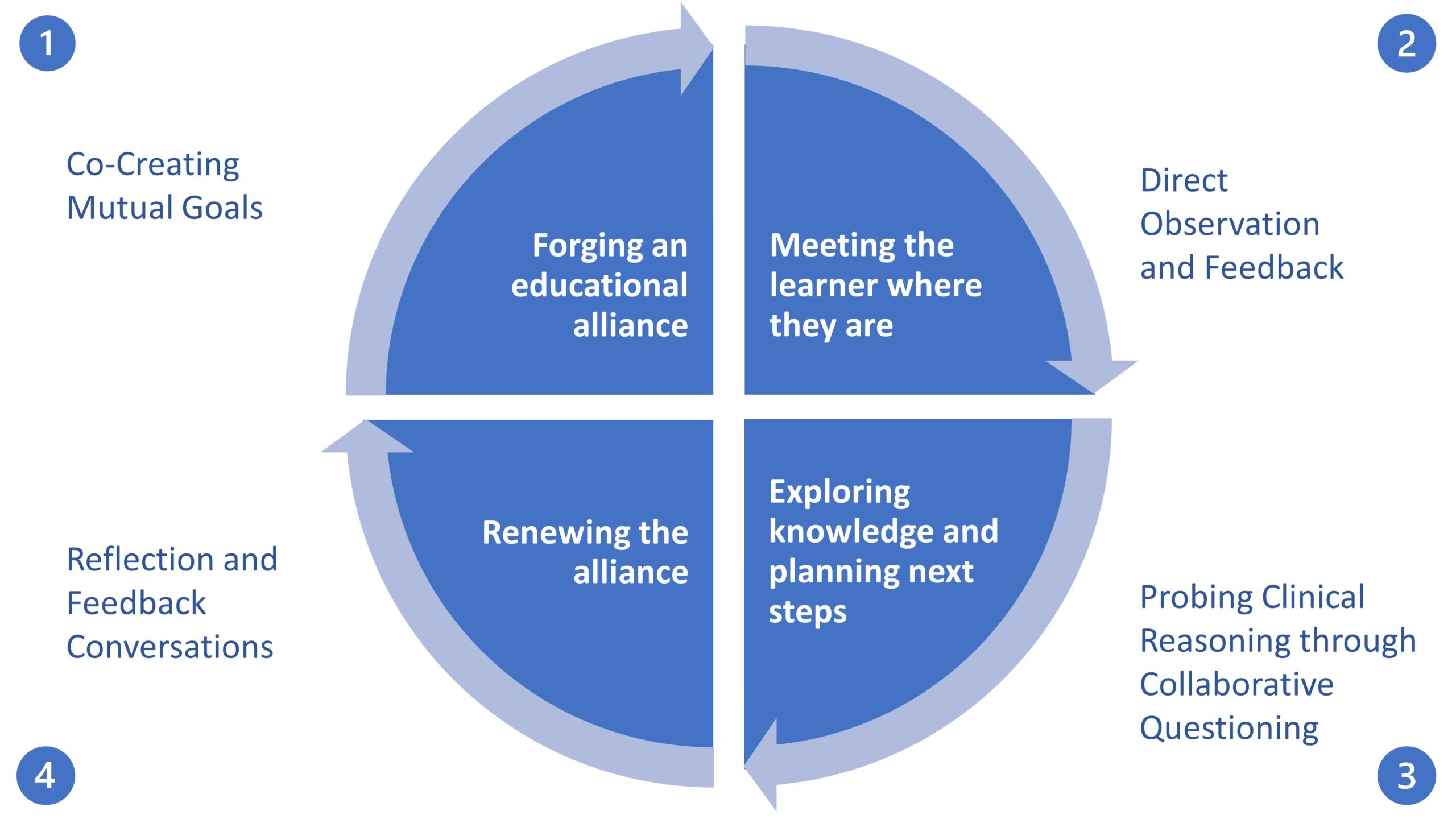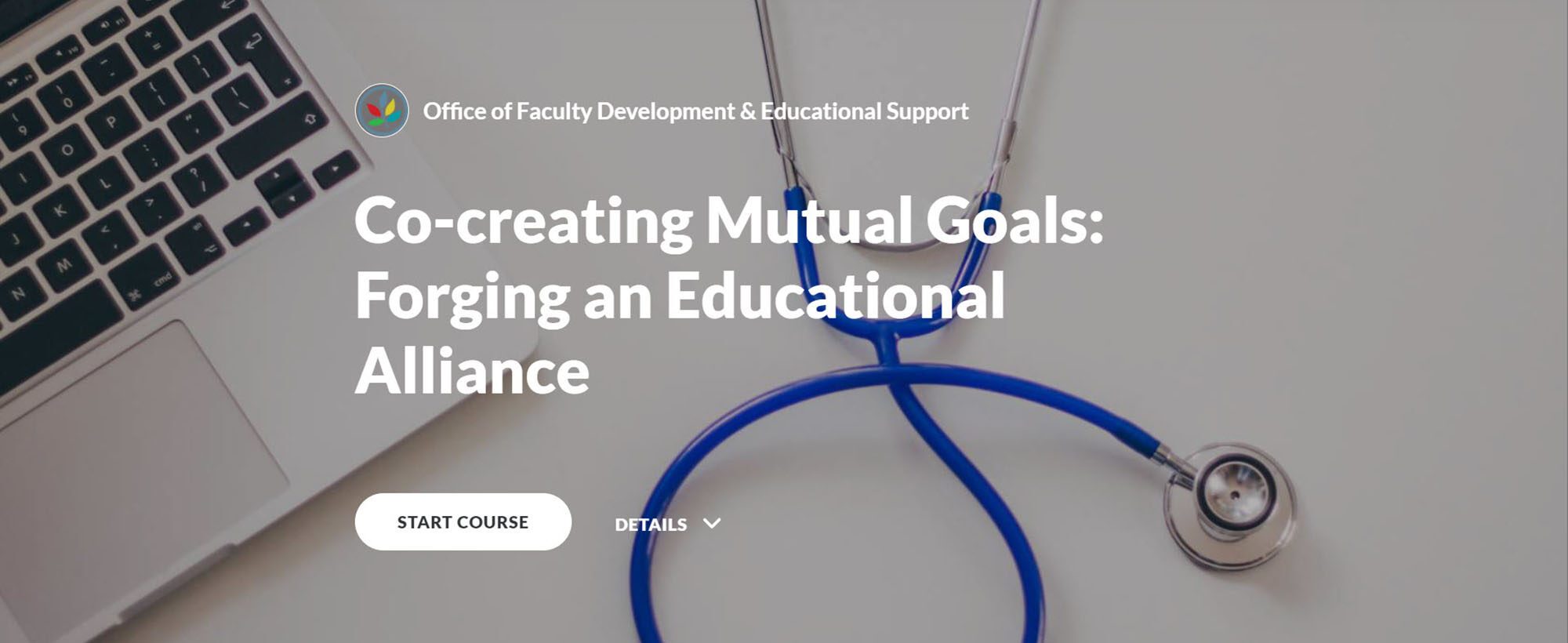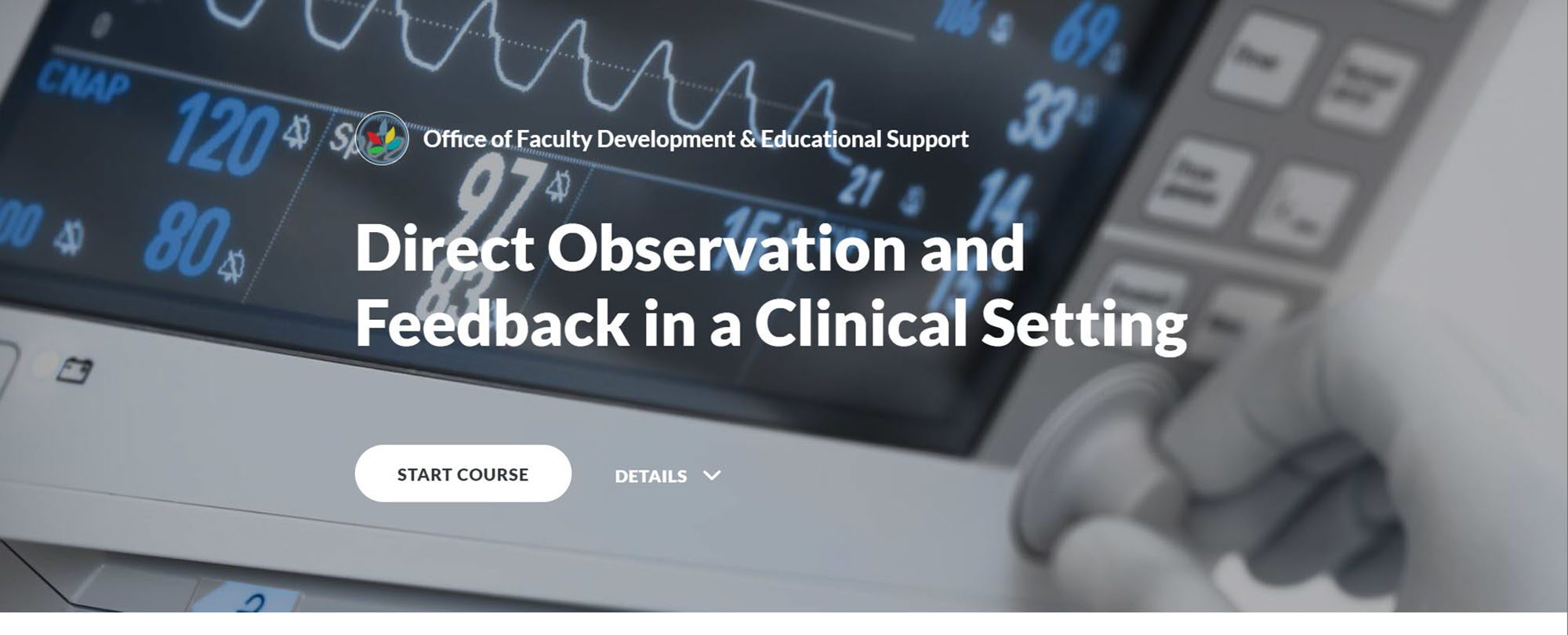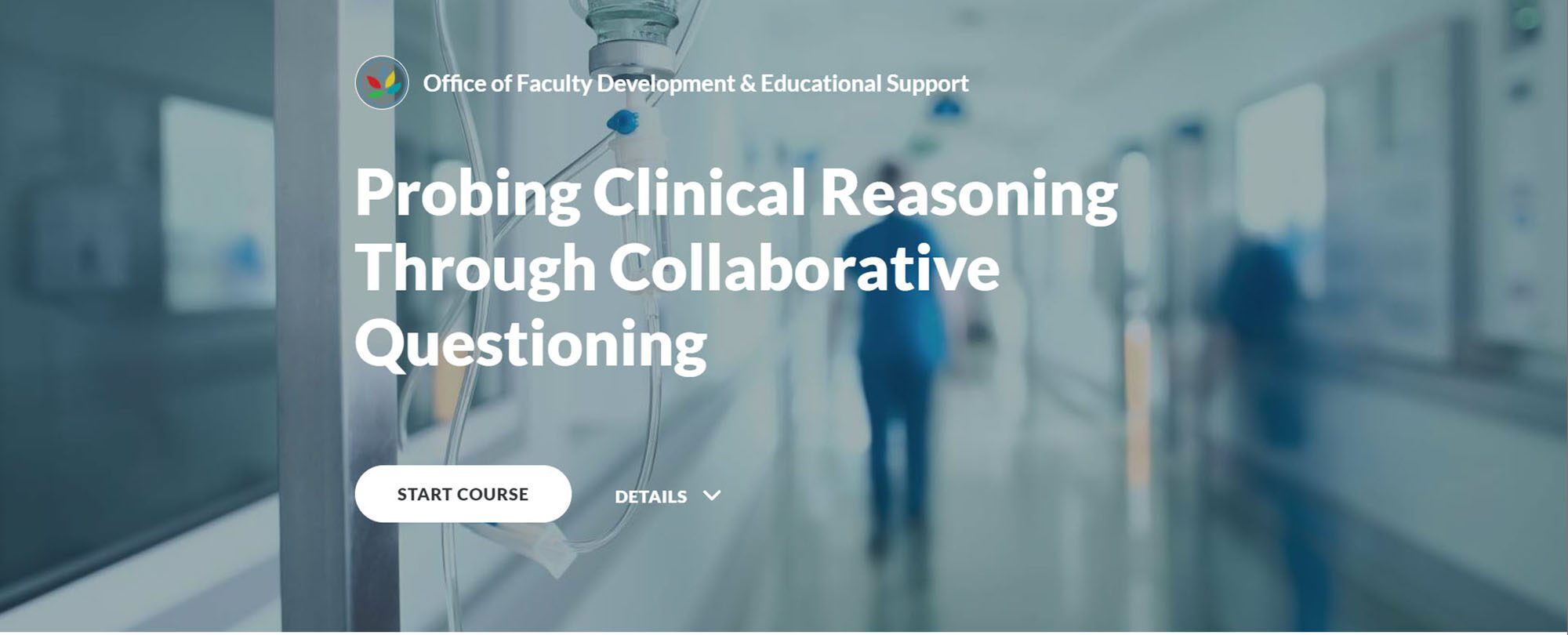Clinical Teaching Mini Modules
In the clinical years learners acquire knowledge and skill through direct experience under your supervision. The following mini-modules illustrate integration of our core values with best teaching practices. They also offer valuable insights and practical tips for teaching.
The four modules cover the interrelated concepts of co-creating goals, doing direct observation and giving feedback, engaging in collaborative questioning to probe clinical reasoning, and reflecting on the experience to offer guidance for self-directed learning. Each module contains scenarios that address teaching both medical students and residents.

We recommend going through the modules in order, but they can be completed as stand-alone modules as well. These modules will take approximately 15-30 minutes to complete each.
Accreditation Information: This activity is an Accredited Self-Assessment Program (Section 3) as defined by the Maintenance of Certification Program of the Royal College of Physicians and Surgeons of Canada, and approved by UBC CPD. You may claim a maximum of 2 hours (credits are automatically calculated). Each physician should claim only those credits accrued through participation in the activity. The total hours (2.0) is for the entire four modules. Each module is 0.5 credits.



